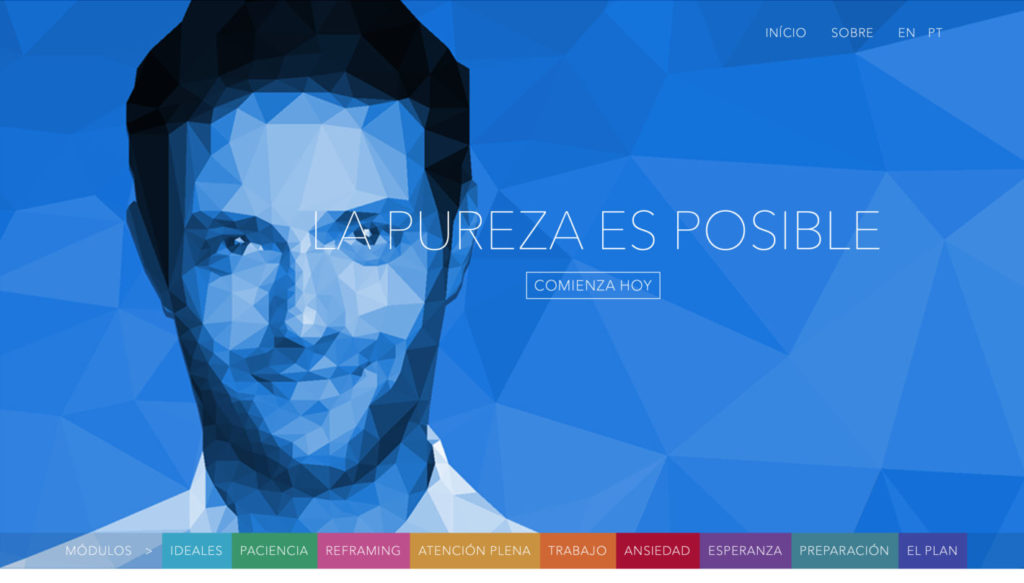Adolescents consume pornography for the first time at age 12 and almost 7 out of 10 (68.2%) consume this sexual content frequently (they have done so in the last 30 days). This consumption occurs in privacy (93.9%), through cell phones, and focuses on free content. online (98.5%), mostly based on violence and inequality.
DATO
68%of adolescents consume pornography on a frequent basis.
This is revealed, among others, by the report Sexual (mis)information: pornography and adolescence published a few months ago by Save the Children to study the consumption of sexual content among the adolescent population and the impact it has on their relationships and development. In addition to shedding light on this issue, the study includes a series of recommendations on how to deal with sexuality for families, education and health professionals and the adolescent population itself.
According to some experts, the power of pornography, the consumption of which is increasing every year, as observed in this and other studies, comes from the way it tricks man's lower brain. One of the drawbacks of this region of the brain is that it cannot distinguish between an image and reality.
Aware of this situation, Dr. Kevin Majeres, MD, has launched an initiative aimed at helping people who find themselves in a situation of some sexual addiction.
Born and raised in Minnesota, Majeres studied medicine at the University of Dallas in Irving, Texas, where he also completed a residency at the University of Texas Southwestern Medical Center. After graduation he completed a fellowship with the Beck Institute for Cognitive Therapy and Research in Philadelphia, and joined the Academy of Cognitive Therapy. She is also a member of the Association of Behavioral and Cognitive Therapists. He is currently on the faculty at Harvard Medical School, where he teaches a weekly class on cognitive behavioral therapy to psychiatrists-in-training at Beth-Israel Deaconess Medical Center. He is also a diplomate of the American Board of Psychiatry and Neurology.
The initiative can be found on the website www.lapurezaesposible.com and its original in English www.purityispossible.com.

Under the claim that "purity is possible for anyone," Majeres offers a method to get out of the addiction of pornography consumption or other addictive sexual behaviors. "Purity," reads the portal's introduction, "is a state of peace in which your sexual desires and behaviors are in complete sync with your ideals. Living according to one's ideals always brings us joy, and anyone is capable of learning to do so through focused practice."
This website aims to apply the wisdom and science of behavioral therapy to the challenge of overcoming addictive sexual behaviors. Through nine modules offered by the method, one can learn step by step how to gain control over impulses, anxiety and distraction. Majeres' method is based on the latest research findings in neuroscience, psychology, physiology and medicine. And along the way, the subject will find many reasons for hope.
The plan begins with a module on ideals. "The purpose of behavioral therapy," explains Kevin Majeres, "is to break vicious circles and foster virtuous circles. Behavioral therapy focuses on the momentum that drives each other. In vicious circles, this momentum is the process of automation that grows as one escapes unpleasant emotions; in virtuous circles, it is the growth in meaning, self-control and joy that accompany the pursuit of ideals. This module will help you identify your ideals and take the first steps to live by them."
At the core of cognitive therapy is the practice of reframingThe "I am a man," with which one voluntarily trains oneself to see trials as opportunities rather than threats. The reframing changes the way your brain works during a test: the tunnel vision formed by the impulse disappears, the ability to make moral decisions is preserved, and a clear vision of ideals remains in the foreground. The person will be less impulsive and less easily distracted, making impulses much easier to manage.
The method, in addition to the two mentioned above, proposes the following modules as an itinerary that the interested party can follow on their own: Ideals, Patience, Reframing, MindfulnessWork, Anxiety, Hope, Preparation and The Plan.








